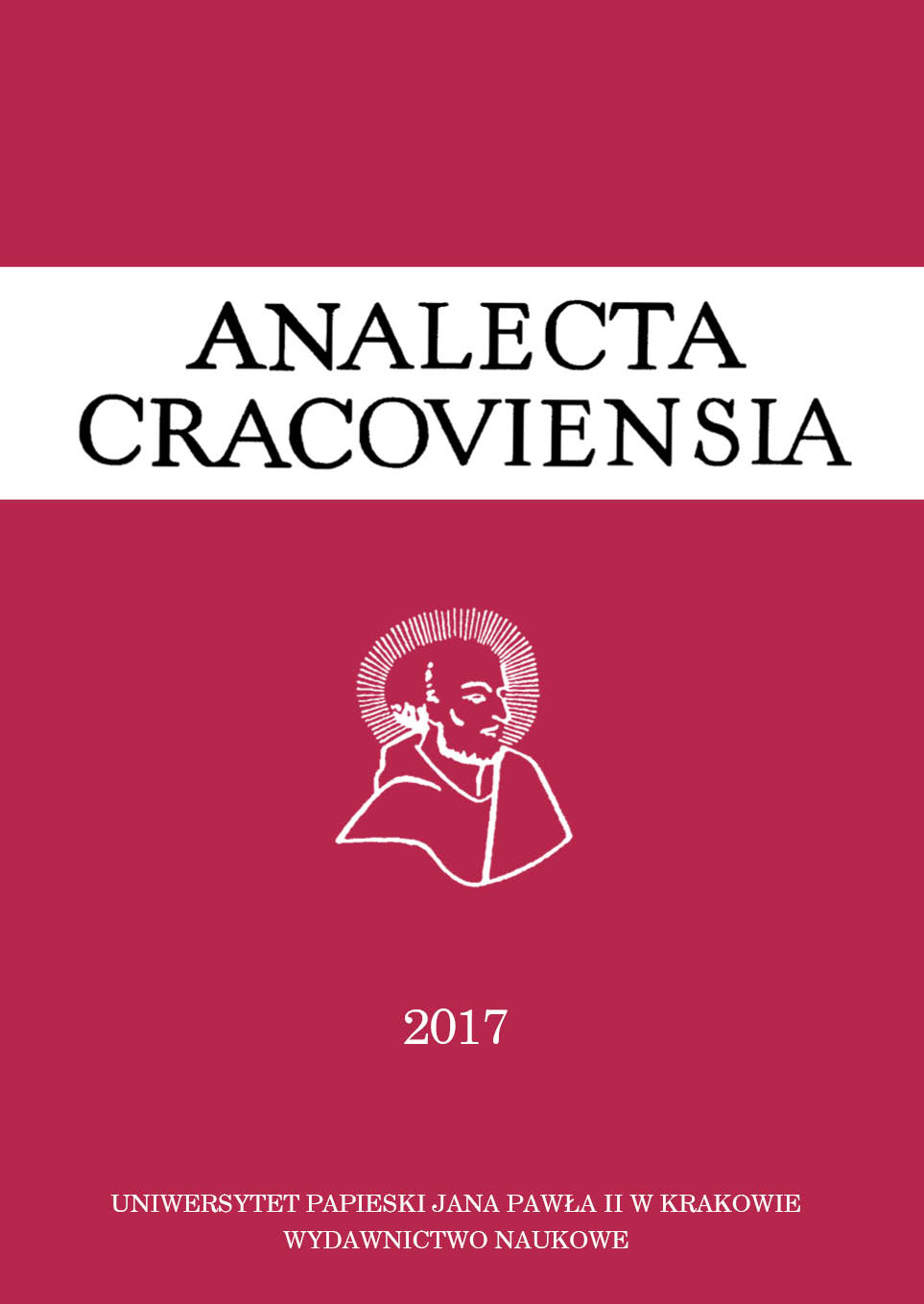Acedia and lype in the writings of Evagrius Ponticus. Ontological theo-anthropology
DOI:
https://doi.org/10.15633/acr.2408Keywords:
acedia, lype, ontological theo-anthropology, existential axiology, being oneselfAbstract
The article examines the problem of the relationship between the two phenomena of the Evagrian theo-anthropology: acedia (listlessness) and lype (sadness). The problem is considered from the perspective of ontological anthropology (a human being is being studied from the side of possibilities and obligations of being oneself). The purpose of the analysis is to demonstrate and explain the differences between acedia and lype in terms of their anthropological justification. This goal is attained through the concepts of existential axiology. The article seeks to demonstrate that acedia and lype point in the human being to two different dimensions: acedia distorts in the existence the sphere of the attitude towards basic values; lype distorts in the existence the sphere of attitudes towards positive values, the realization of which signifies a fulfillment of existence.
References
Św. Antoni, Żywot. Pisma ascetyczne, tłum. E. Dąbrowska i in., Kraków 2005.
Ewagriusz z Pontu, Pisma ascetyczne, t. 1, tłum. K. Bielawski i in., Kraków 1998.
Ewagriusz z Pontu, Pisma ascetyczne, t. 2, tłum. M. Grzelak i in., Kraków 2005.
Evagrius of Pontus, The Greek Ascetic Corpus, ed. and trans. R. E. Sinkiewicz, New York–Oxford 2003.
Baranowska M. M., Bóg w myśli Schelera, Kraków 2011.
Kaznowski P., Krótka historia metafizycznego znużenia, „Christianitas” 44 (2010), s. 40–57.
Leloup J.-Y., Hezychazm. Zapomniana tradycja modlitewna, tłum. H. Sobieraj, Kraków 1996.
Luijpen W., Fenomenologia egzystencjalna, tłum. B. Chwedeńczuk, Warszawa 1972.
Macheta L., Aktualność Ewagriańskiej koncepcji ośmiu logismoi. Antropologia duchowości, [w:] Chrześcijaństwo a współczesne koncepcje człowieka, red. L. Suchanek, Kraków 2013, s. 131–141.
Macheta L., Demon południa i zafałszowanie egzystencji. O acedii starożytnego mnicha i „zbędności” inteligenta rosyjskiego XIX wieku, Kraków 2003.
Misiarczyk L., Osiem „logismoi” w pismach Ewagriusza z Pontu, Kraków 2007.
Nault J.-Ch., Acedia: Enemy of spiritual joy, „Communio” 31 (2004), s. 236–258.
Nieścior L., Anachoreza w pismach Ewagriusza z Pontu, Kraków 1997.
Nieścior L., Kategorie myśli w nauce ascetycznej Ewagriusza z Pontu, „Roczniki Humanistyczne” 44 (1996) z. 3, s. 203–230.
Nieścior L., Pojęcie apathei w pismach Ewagriusza z Pontu, „Studia Paradyskie” 6/7 (1996–1997), s. 105–133.
Nieścior L., „Πρακτική” jako walka ze złymi myślami w nauce Ewagriusza z Pontu, „Vox Populi” 17 (1997) t. 32–33, s. 105–113.
Nieścior L., Rozeznawanie myśli („διάκρισιϛ”) i spór z nimi („ἀντίρρησιϛ”) według Ewagriusza z Pontu, [w:] Droga doskonalenia chrześcijańskiego w epoce patrystycznej, red. F. Drączkowski, J. Pałucki, Lublin 1997, s. 31–56.
Nieścior L., Smutek w nauce Ewagriusza z Pontu, „Życie Duchowe” 59 (2009), s. 24–34.
Nieścior L., Trudy (πόνοι) jako termin ascetyczny u Ewagriusza z Pontu, „Studia Paradyskie” 5 (1995), s. 81–108.
Orlik P., Fenomenologia świadomości aksjologicznej. (Max Scheler – Dietrich von Hildebrand), Poznań 1995.
Pierwsza Księga Starców. Gerontikon, tłum. M. Borkowska, Kraków 1992.
Przybylski R., Uraz do materii. Esej o nadmiarze możliwości, „Znak” (1993) nr 458(7), s. 87–110.
Scheler M., Dobra a wartości, [w:] Z fenomenologii wartości, tłum. W. Galewicz, Kraków 1988, s. 46–59.
Scheler M., Wartości „wyższe” i „niższe”, [w:] Z fenomenologii wartości, tłum. W. Galewicz, Kraków 1988, s. 67–84.
Stróżewski W., Istnienie i wartość, Kraków 1981.
Stróżewski W., Od wartości bytu do bytu wartości, [w:] Dziedzictwo aksjologii fenomenologicznej. Studia i szkice, red. P. Duchliński, Kraków 2011, s. 15–33.
Tischner J., Świat ludzkiej nadziei. Wybór szkiców filozoficznych 1966–1975, Kraków 1992.
Św. Tomasz z Akwinu, Suma teologiczna. Uczucia, t. 10, tłum. J. Bardan, London 1967.
Węgrzecki A., Antropologiczny sens bycia sobą, [w:] Wokół filozofii spotkania, Kraków 2014, s. 184–191.
Węgrzecki A., Bycie sobą w świecie współczesnym, [w:] Kondycja człowieka współczesnego, red. Cz. Piecuch, Kraków 2006, s. 15–32.
Workowski A., Ontologiczne podstawy posiadania, Wrocław 2009.
Downloads
Published
Issue
Section
License
Authors who publish with this journal agree to the following terms:
- Authors retain the copyright and full publishing rights without restrictions, and grant the journal right of first publication with the work simultaneously licensed under a Creative Commons Attribution 4.0 International License that allows others to share the work with an acknowledgement of the work's authorship and initial publication in this journal.
- Authors are able to enter into separate, additional contractual arrangements for the non-exclusive distribution of the journal's published version of the work (e.g., post it to an institutional repository or publish it in a book), with an acknowledgement of its initial publication in this journal.
- Authors are permitted and encouraged to post their work online (e.g., in institutional repositories or on their website) prior to and during the submission process, as it can lead to productive exchanges, as well as earlier and greater citation of published work (See The Effect of Open Access).

